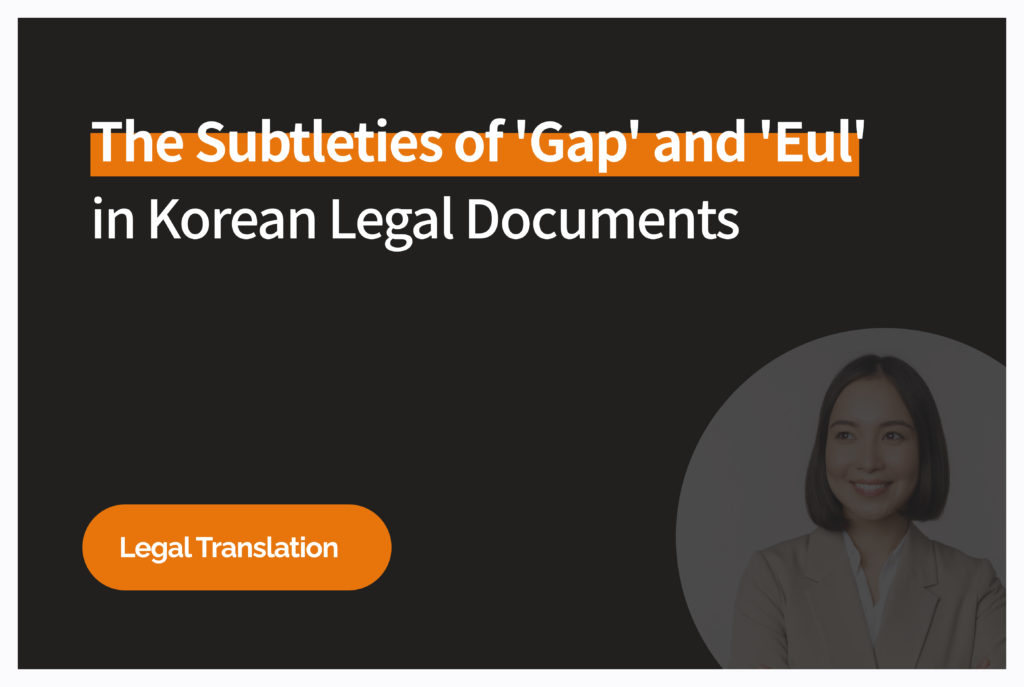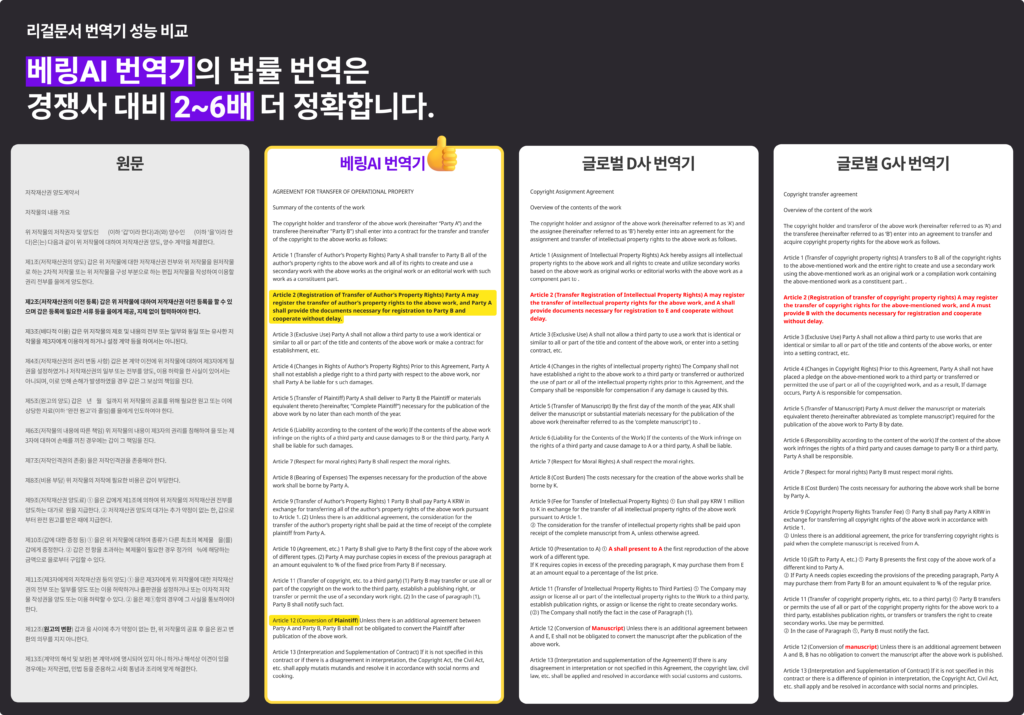The Importance of Precision in Legal Translation
Translating legal documents goes beyond simple language conversion, encompassing complexities that demand special attention. In particular, terms like ‘Gap’ (甲) and ‘Eul’ (乙) frequently appear in Korean legal texts and require careful consideration. This blog aims to delve deep into the nuances of such terms to aid translators in achieving more accurate translations.
The Complex Roles of ‘Gap’ and ‘Eul’ in Legal Contexts
While many terms can be directly translated into another language, some cannot due to varying degrees of complexity. Among these, some terms like ‘Gap’ and ‘Eul’ present subtle challenges. These terms often appear in Korean legal documents and carry multiple definitions.
Predominantly, ‘Gap’ means first and ‘Eul’ second, encompassing concepts such as “primary” and “secondary,” “superior” and “subordinate,” and even “dominant contractual party” and “subordinate contractual party.” However, this is not exhaustive. In non-hierarchical contexts, ‘Gap’ and ‘Eul’ also differentiate between two objects in the same way as “item A” and “item B” in English.
But in most contexts, ‘Gap’ always assumes a dominant position, and ‘Eul’ is somewhat subordinate, a relationship also indicated by related terms like ‘Gapjil’ (갑질), which loosely means abusing hierarchical power. Therefore, the appropriate translation for ‘Gap’ and ‘Eul’ is almost always context-dependent.
‘Gap’ and ‘Eul’ are most commonly used in Korean contracts to denote the parties involved. Depending on the definition of ‘Gap’ and ‘Eul’, translations can range from the extremely generic “Party A” and “Party B” to less generic terms like “contractee” for ‘Gap’ and “contractor” for ‘Eul,’ to the very specific such as “employer” and “employee” in an employment agreement or “franchisor” and “franchisee” in a franchising agreement.
Similarly, exhibits submitted to a Korean court in a civil lawsuit always begin with either ‘Gap’ or ‘Eul’ followed by the exhibit number, with ‘Gap’ being the party that initiated the litigation and ‘Eul’ the respondent. Thus, in this context, ‘Gap’ and ‘Eul’ translate to “plaintiff” and “defendant,” “applicant” and “respondent,” etc., depending on the situation.
These examples illustrate the versatility of these single syllables in Korean, presenting another opportunity for refined translation work. While it is easy to translate ‘Gap’ and ‘Eul’ generically and correctly, this method seldom produces readable and polished output. Context matters, even when it seems ignorable.
Enhancing Translation Quality through Contextual Awareness
The translation of terms like ‘Gap’ and ‘Eul’ highlights the importance of accuracy and contextual understanding for translators. Grasping how these terms are used in Korean legal documents and translating them appropriately is crucial to the quality of the translation. Translators must consider the context to select the most fitting terms, underscoring the delicacy and expertise required in translation work.
Why Choose BeringAI for Legal Translation?
Legal translation goes beyond simple text conversion; it requires careful and precise handling. BeringAI is a legal translation solution designed for precision and necessity, crafted specifically for legal professionals by lawyers. It simplifies the translation process, minimizes human errors, cuts costs, and delivers rapid results without compromising security or accuracy.
BeringAI provides a dependable solution for international law firms, global corporations, and individuals handling cross-border legal issues. The solution is ready for immediate use.
Currently, more than 130 law firms worldwide, including active global corporations, trust BeringLab. Experience the most accurate professional translations supervised directly by lawyers with BeringAI and BeringAI+, offering legal document translations faster and more affordably.
😎 Contact BeringLab now for professional lawyer-reviewed legal document translations.


